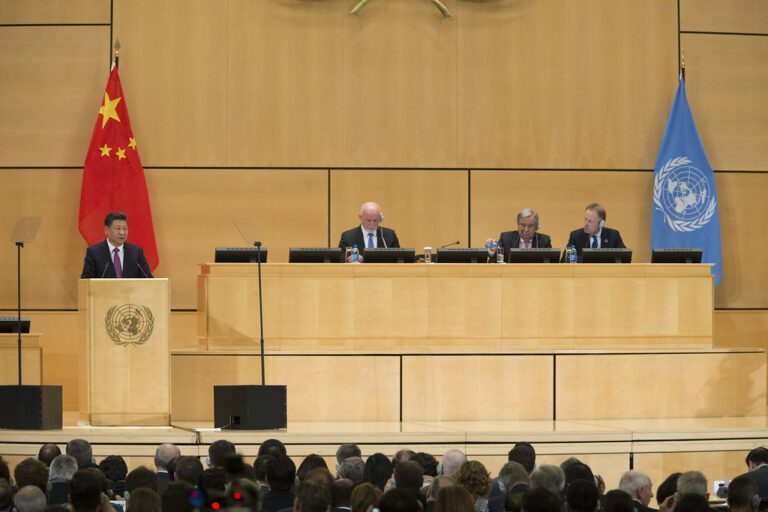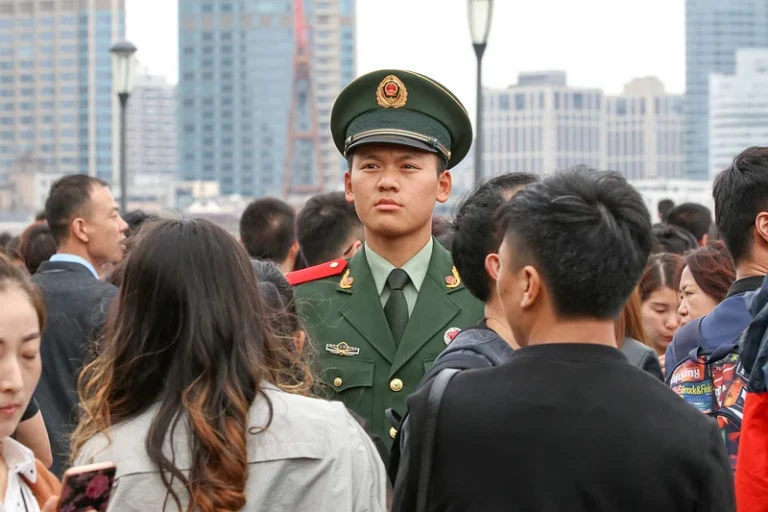Offsetting External Influence in the Balkans: Recommendations for the EU

The failure to open accession talks with Albania and North Macedonia has again shifted focus on the question of the EU’s credibility in the Western Balkans. The EU’s lack of leadership in the region is creating opportunities for external powers, chief among them China. Beijing has been deepening its engagement with the Balkans since the inception of the 16+1 platform in 2012, with the region receiving bulk of its investments in CEE. While often welcome by the Balkans countries, Chinese economic presence is also bringing about serious questions about the respect for European standards and the effect on the overall political environment. Bellow, Barbora Chrzová from PSSI proposes three recommendations for the EU to improve its standing in the Balkans and offset the regional influence of external actors including China.
1) Open communication about enlargement and self-promotion for improving the EU’s visibility should become cornerstones of the EU strategy towards the region.
When not delivering on promises, such as in the case of delaying the opening of the accession negotiations with Albania and North Macedonia, despite both countries meeting the given criteria, the image and credibility of the EU significantly suffers, which is detrimental to the motivation for reform, especially with regards to the EU’s stipulated merit-based approach. The EU should, therefore, be open and truthful in its promises, and frank about the real prospects for enlargement. It is necessary that a dialogue is conducted with the Member States, as well as the Western Balkan countries, on what the Western Balkans enlargement might bring to the EU and which challenges it will pose. Finding a consensus among the EU Member States is crucial for making the EU’s promises feasible and credible.
Also, the EU should not rely on its ‘natural’ soft power and attractiveness, taking its position for granted. Instead, it should actively engage in its self-promotion, and make communication a priority of its strategy. As apparent from Russia’s, Turkey’s, or China’s rising popularity and inflated depictions of their involvement, the fact that EU is the largest donor, investor, and trade partner is not enough for winning hearts and minds in the current PR-driven world.
The EU enlargement also tends to be understood as an elite-driven project, which further downgrades its popularity among citizens. The new Commission and the EEAS should, therefore, focus on better communicating what the EU does in the Western Balkans, how it improves people’s lives, and what more it can bring to them. The EU communication strategy should particularly focus on those areas and people in the Balkans who currently feel alienated from, and unwanted by, the EU, Bosnian and Kosovo Serbs in particular. It should monitor the rise of nationalism and xenophobia, and external actors’ role in inciting it (particularly Russia’s), while being very sensitive in countering it, and careful not to adopt one group’s rhetoric and views, thus solidifying feelings of unfairness among the rest.
2) The EU should support research, independent journalism, and awareness-raising initiatives on external influence activities, their causes, and consequences
Without a deeper understanding of the various modalities of foreign actors meddling and the influence attempts employed, as well as the underlying goals, causes, and consequences, the West can expect only limited results in the deeper integration of the region into its structures. Better comprehension will contribute not only to the prevention of potentially harmful external influences, but also reveal the weaknesses of the current European policies in the region.
The EU should, therefore, support research, independent journalism, and awareness-raising initiatives about these topics through its grant schemes. It should also encourage networking and knowledge, and good practice exchanges between various organisations and institutes in the EU Member States and the Western Balkans. It is in the EU’s best interest to enhance Western Balkan societies’ resilience against external influences undermining democracy and the rule of law, or contributing to the flourishing of a corrupt environment. Increasing understanding and opening a public debate about external actors’ influence activities is the first necessary step to make. Supporting and assisting local governments in developing investment screening mechanisms and systems to counter disinformation, or corruption shall follow.
3) The EU should engage civil society actors, encourage the cultivation of a democratic environment and democratic discussion holding local leaders more accountable.
A strong civil society is a prerequisite for a stable and durable democracy, and the EU should not ignore it in its approach and policies towards the region; this perspective is largely lacking in the existing strategy. The strategy introduced by the Juncker Commission stresses the responsibility of local governments for progress toward the European path and leave it up to an internal decision as to what their countries’ geostrategic goals are. Our research has, however, shown that many Balkan leaders are keen to exploit their business and political relations with non-Western countries to enjoy the benefits of shady business deals or to consolidate their own power. In Serbia, government-linked media outlets stand behind the promotion of a positive image of non-Western countries, while often blaming the EU for all failings. In this context, the current EU’s approach makes citizens the victims of their leaders’ decisions and actions, instead of building a strong civil society, which can be the safeguard of democracy and a motor for reforms. Without popular support for EU integration and leaders held accountable to their citizens, EU enlargement will be either unsuccessful or detrimental for the EU itself if materialised. We, therefore, suggest that the EU’s strategy reflects the need to support local civil society actors through its funding schemes, and by inviting them to negotiations on accession chapters, and monitoring and assessment of ongoing developments. It should also establish a platform for regular consultations with civil society representatives.
This is an excerpt of a policy paper authored by Barbora Chrzová within the framework of the project titled “Western Balkans at the Crossroads: Assessing Non-
Democratic External Influence Activities” led by the Prague Security Studies Institute with the support of the National Endowment for Democracy. The excerpt is published here with slight changes with the permission from the author.
Written by
Barbora Chrzova
Barbora Chrzová is a Program Manager at PSSI. Her research interests include politics and society in the Balkans and Putin’s Russia with a special focus on the politics of identity and propaganda.


